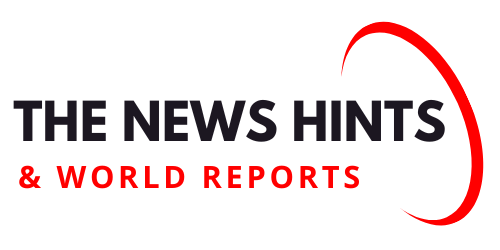
On his last day in office, President Aoun is expected to sign a decree accepting the resignation of his caretaker government. He has designated Mikati to form a new government, but he has not succeeded. Therefore, he remains head of the caretaker government. Bassil has accused Mikati of auctioning off some of the remaining powers of the president.
Lebanese presidents
Lebanon’s economic crisis has deepened over the past three years, with the country’s currency losing more than 95% of its value and 80% of the population living in poverty. President Aoun has also criticized political rivals and others for not allowing a full investigation into the blast that killed more than two20 people at Beirut’s port. But his legacy is not just bleak. His departure from the presidency marks a new chapter in Lebanon’s turbulent political and economic crisis.
Aoun, a Christian, took office in 2016 after a two-year presidential vacuum. His opposition has accused him of scheming to use his position to bolster the Shiite-led Hezbollah. But despite his controversies, many Lebanese see him as the defender of Christians and a leader fighting corruption. Others criticise him for a succession plan, accusing him of being a corruption-prone ally and grooming his son-in-law to take over his position.
Aoun’s party, the Free Patriotic Movement, has reacted by setting up tents in the woods around the presidential palace. Aoun’s party, the Free Patriotic Movement (FPM), decided to make the exit colorful. Although Aoun’s term had expired, parliament had failed to elect a successor during the two-month constitutional deadline.
In the meantime, Beirut is left in an awkward position with no clear successor. President Aoun’s departure also creates a political vacuum in Lebanon and could worsen the country’s emergency situation. A caretaker government will lead the country for now, but Aoun’s supporters have warned that it could lead to a constitutional crisis.
Although Lebanon’s constitution allows the government to act without the president, the constitution is unclear about the role of a caretaker government. However, constitutional law professor Wissam Lahham says that the government should continue to function as usual as long as the state is functioning, including public services.
After six months of brutal fighting, President Aoun agreed to a cease-fire and the Taif Accord. This agreement, which included a draft constitution for Lebanon, had widespread support from war-weary Lebanese. General Aoun later fled to France. However, he remained an activist against Syrian occupation.
Lebanese economy
The resignation of President Aoun Leaves Office is a blow to the country’s economy, which is already at the lowest level in almost four decades. His government inherited a financial crisis that pushed 80% of the population into poverty. It also resulted in the deadly explosion at Beirut’s port in 2020, which killed more than 220 people and destroyed a cargo ship. However, despite his record, Aoun has been hailed as a hero by many Christians and is seen as a defender of Christians in Lebanon. But he has also been accused of corruption and helping Hezbollah gain influence. He also served as the head of two rival governments during the 1975-1990 civil war.
Hezbollah, the militant Shia party, has backed Aoun for many years, but it now appears to be setting the stage for a new presidential era after Aoun’s departure. Although he had a long-time alliance with the president, it appears that the party will abandon him and seek other political alliances.
The coalition is trying to prevent a power vacuum, which would further exacerbate the country’s economic and social crisis. Furthermore, the alliance hopes to ensure stability and support for its reform plans. Mikati’s short-term mandate focuses on reform and negotiations with the IMF.
In the meantime, the caretaker justice minister has called for the appointment of a new judge in the port blast case. Tarek Bitar, the head of the port blast investigation, has been suspended as he faces calls to remove him. But now, Samaranda Nassar, a North Lebanon judge, has been named as the new investigating judge.
While Lebanon’s emergency has decreased, the threat of violence and social unrest remains high. The emergence of political violence is one possibility that can shake the country to its knees. The government has been unable to protect its people, and Hizbollah has seized the initiative by forcing the government to rescind its decisions. In addition to this, Hizbollah has exercised de facto veto power over the formation of the government. Furthermore, it has maintained a close relationship with Amal, which gives it monopoly over Shiite representation.
With the collapse of the economy and state institutions, it is crucial for international partners to step in and send humanitarian aid to Lebanon. They should also ensure that key infrastructure is kept running to avoid security breakdowns. The deterioration of the security sector is the most dangerous problem facing the country. The security forces are stretched to the limit and cannot earn a living wage. If they are unable to do so, armed rackets and political parties will fill the vacuum.
Hezbollah’s influence in Lebanese politics
Lebanon’s recent parliamentary elections favored Hezbollah, who won a close margin. However, the sectarian political system favors traditionalist parties, and the country’s economic collapse will force opposition parties to compromise. However, the continued presence of Hezbollah in Lebanese politics will be a major problem for the state, as the group poses a serious threat to the country’s corrupt political order and the state.
Hezbollah is now trying to exert its influence over the government by influencing cabinet decision-making. It has even declared its intention to become part of any future Lebanese government. The leadership of Hezbollah has also threatened to fuel a civil war if Lebanon does not accept its demands. In addition, Hezbollah’s leadership will use the carrot and stick tactic to impose its will on the government.
Although Hezbollah’s political wings are largely transparent in mainstream Lebanese society, the group’s military and intelligence wings operate in a highly secretive manner. All matters pertaining to the movement’s members are confidential. While Nasrallah’s statement in Cairo acknowledged the organization’s role in the Egyptian conflict, it failed to provide details on its operations.
The recent developments in Iran’s political system may have an impact on Lebanon’s elections and government. But the influence of Hezbollah in Lebanese politics will continue to be a concern to the Saudi authorities. The group’s ties with Iran and the Houthi Movement are also of concern to the Saudis.
In addition to its political role, Hezbollah has been involved in drug trafficking in the Caribbean and Latin America. The group’s financial support continues to come from Iran, but it also receives donations from the Arab diaspora in other countries. These contributions may not be entirely legitimate, but they may be related to legitimate business interests.
In addition to the military, Hezbollah also provides social services and other essentials for the Shi’a community in Lebanon. Its role as a provider and protector for the Shi’a community in Lebanon is an important tool for Iran.
His political alignment with Hezbollah
As Lebanon’s emergency declines, President Michel Aoun is calling for a national dialogue. He also declared that the state should implement its own defence strategy. His close alignment with Hezbollah has sparked controversy. This article explores the relationship between the two sides. And it offers a glimpse of how these alliances may affect the country’s future.
The political alignment with Hezbollah is part of a larger shift in the country’s political landscape. Although Hezbollah has long preferred an Islamic state, its leadership accepted the multi-sectarian nature of Lebanon. This change prompted internal debate among Hezbollah lebanon leaders. Some argued that Hezbollah should not compromise its ideological stance, while others countered that it must adapt to the new situation in order to protect its priority as the resistance.
In February 2006, Aoun signed a memorandum with Hezbollah leader Hassan Nasrallah. This memorandum was a step toward forming a parliamentary bloc that was more pro-Syrian. The memorandum also included a deal with March 8 elements. The deal helped Aoun become president.
In the wake of the July 2016 election, Aoun’s political alignment with Hezzbollah has fueled speculations about the future of Lebanon’s government. While the emergency has decreased, the political alignment between the two groups has continued.
Over the past four decades, Hezbollah’s political engagement with Lebanon has deepened. It is now the main representative of Lebanon’s Shiite community. The group’s interests don’t always align with Iran’s, but they are ideologically aligned. The political alignment between the two sides could be crucial to the future of Lebanon.
The political instability in Lebanon poses a dilemma for armed groups. With the conditions in Lebanon constantly changing, it is difficult for armed groups to know when to intervene. By the time it becomes necessary to act, it may be too late to avoid a full-blown disaster. Therefore, it is better to time their interventions around key upcoming milestones in the country. For example, Lebanon’s national elections are scheduled for 2022. If they can time their interventions with these events, they may be able to avoid a fuller disaster.
In the wake of Israel’s withdrawal from Lebanon Hezbollah’s reputation was at its highest. The organization claimed that its weapons were essential to Lebanon’s defense. However, many Lebanes accused Hezbollah of serving Iran’s agenda and enjoying political cover from Syria.










